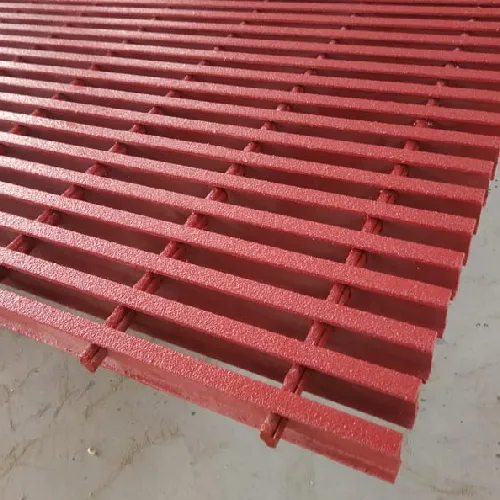loading...
- No. 9, Xingyuan South Street, Dongwaihuan Road, Zaoqiang County, Hengshui, Hebei, China
- admin@zjcomposites.com
- +86 15097380338
- Welcome to visit our website!
Industrial Reverse Osmosis Water Purification System for Enhanced Water Quality Solutions
Understanding Industrial Reverse Osmosis Water Systems
In an era where water scarcity is becoming an increasingly pressing issue, the importance of efficient water purification systems cannot be overstated. Industrial reverse osmosis (RO) water systems have emerged as a pivotal solution in various sectors, including manufacturing, pharmaceuticals, food processing, and power generation. This article delves into the working principles, benefits, and applications of industrial RO water systems, shedding light on why they are indispensable in today’s industrial landscape.
What is Reverse Osmosis?
Reverse osmosis is a water purification process that utilizes a semi-permeable membrane to remove ions, unwanted molecules, and larger particles from drinking water. The process involves applying pressure to overcome the natural osmotic pressure, thus reversing the flow of water through the membrane. As a result, pure water is separated from contaminants, producing high-purity water that meets stringent quality standards.
The Components of Industrial RO Systems
An industrial reverse osmosis system typically consists of several key components
1. Pre-treatment System This includes filtration units, chemical dosing systems, and softeners that prepare feed water by removing larger particles, chlorine, and hardness. Proper pre-treatment is crucial for extending the lifespan of the RO membranes.
2. Reverse Osmosis Membrane The heart of the system, the RO membrane selectively allows water molecules to pass while blocking salts, organics, and other impurities. The choice of membrane material and configuration (e.g., spiral wound) significantly influences the efficiency and effectiveness of the system.
3. High-Pressure Pump This pump generates the pressure required to drive the feed water through the RO membranes. The pump's capacity and efficiency are vital factors in the overall performance of the system.
4. Post-treatment Unit Once the water has passed through the RO membranes, it may require further treatment to enhance its quality, such as deionization or UV sterilization, depending on its intended use.
5. Control Systems Modern RO systems are equipped with advanced monitoring and control technology, enabling real-time adjustments and ensuring optimal operation.
Benefits of Industrial RO Water Systems
industrial ro water system

1. High Purity Industrial RO systems produce water with high purity levels, effectively removing contaminants and providing water that meets stringent regulatory and quality standards. This makes them ideal for applications such as pharmaceutical manufacturing, where purity is critical.
2. Cost Efficiency By reducing the reliance on purchased water or extensive chemical treatments, industrial RO systems can lead to significant cost savings. Moreover, they typically have lower operating costs compared to traditional water purification methods.
3. Environmental Sustainability These systems minimize water wastage and can often reclaim and recycle water, contributing to sustainable operations. This aligns with global initiatives towards reducing industrial water footprints and promoting resource conservation.
4. Versatility Industrial RO systems can be tailored to meet the specific needs of various industries, from food and beverage to electronics and energy. They can effectively treat a wide range of water sources, making them a flexible solution.
Applications of Industrial RO Water Systems
The versatility of industrial RO systems allows them to be utilized across a diverse array of applications
- Food and Beverage Industry Purified water is essential for production processes, ensuring safety and compliance with food safety regulations. - Pharmaceuticals High-purity water is crucial for drug manufacturing, where even trace contaminants can compromise product quality and safety.
- Power Generation RO systems provide demineralized water for steam generation and cooling towers, essential for maintaining efficiency and reducing scale formation.
- Textiles and Chemicals In these industries, RO systems help in dyeing and finishing processes, as well as in the preparation of chemical solutions.
Conclusion
As industries continue to face challenges related to water quality and availability, industrial reverse osmosis water systems stand out as a reliable and effective solution. With their ability to produce high-purity water efficiently and sustainably, these systems are not just a necessity but a key driver of innovation and growth in various sectors. Embracing such advanced water purification technologies is essential for industries aiming to thrive in a resource-constrained world.
-
The Rise of FRP Profiles: Strong, Lightweight, and Built to LastNewsJul.14,2025
-
SMC Panel Tanks: A Modern Water Storage Solution for All EnvironmentsNewsJul.14,2025
-
GRP Grating: A Modern Solution for Safe and Durable Access SystemsNewsJul.14,2025
-
Galvanized Steel Water Tanks: Durable, Reliable, and Ready for UseNewsJul.14,2025
-
FRP Mini Mesh Grating: The Safer, Smarter Flooring SolutionNewsJul.14,2025
-
Exploring FRP Vessels: Durable Solutions for Modern Fluid HandlingNewsJul.14,2025
-
GRP Structures: The Future of Lightweight, High-Performance EngineeringNewsJun.20,2025
